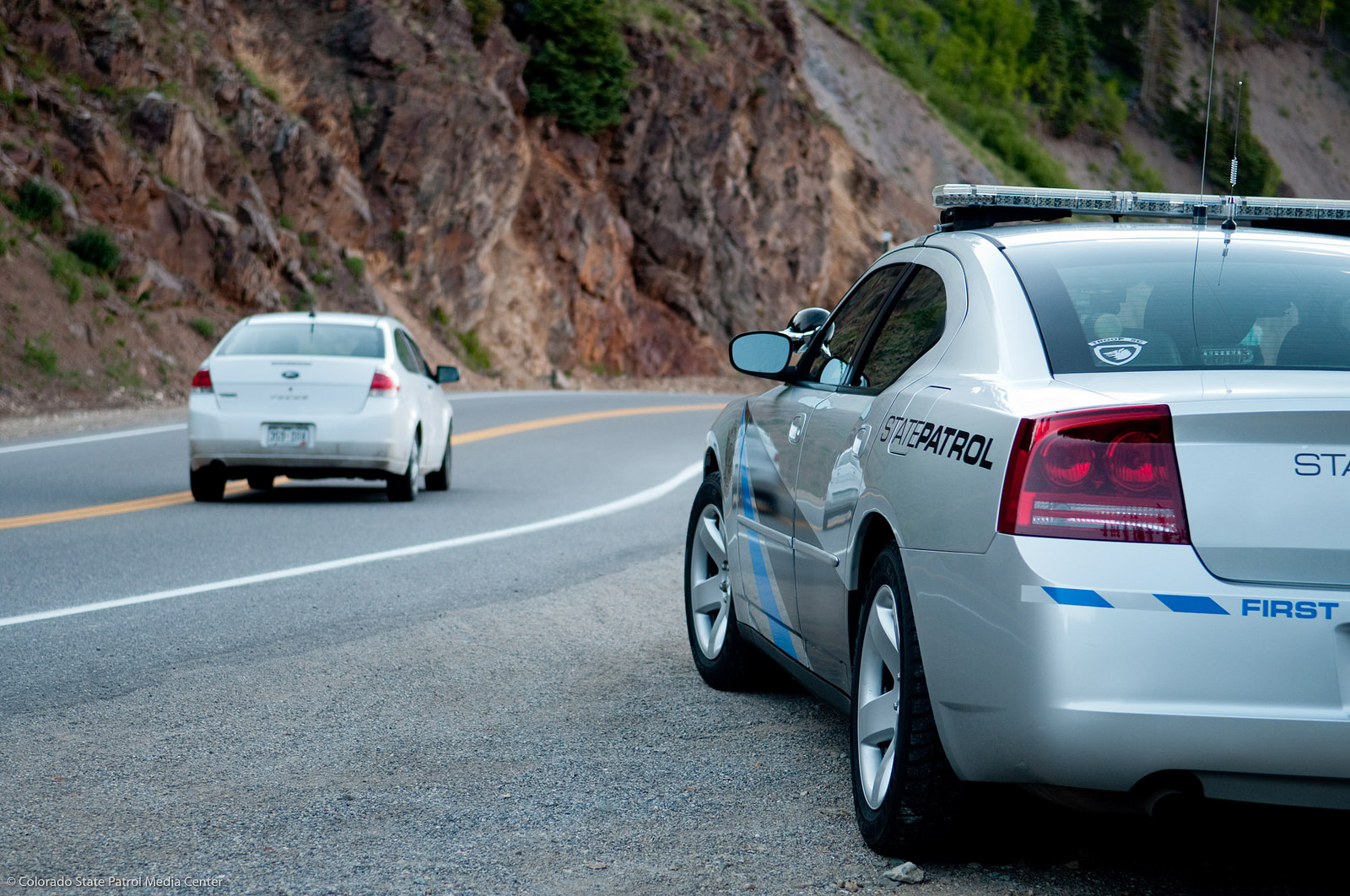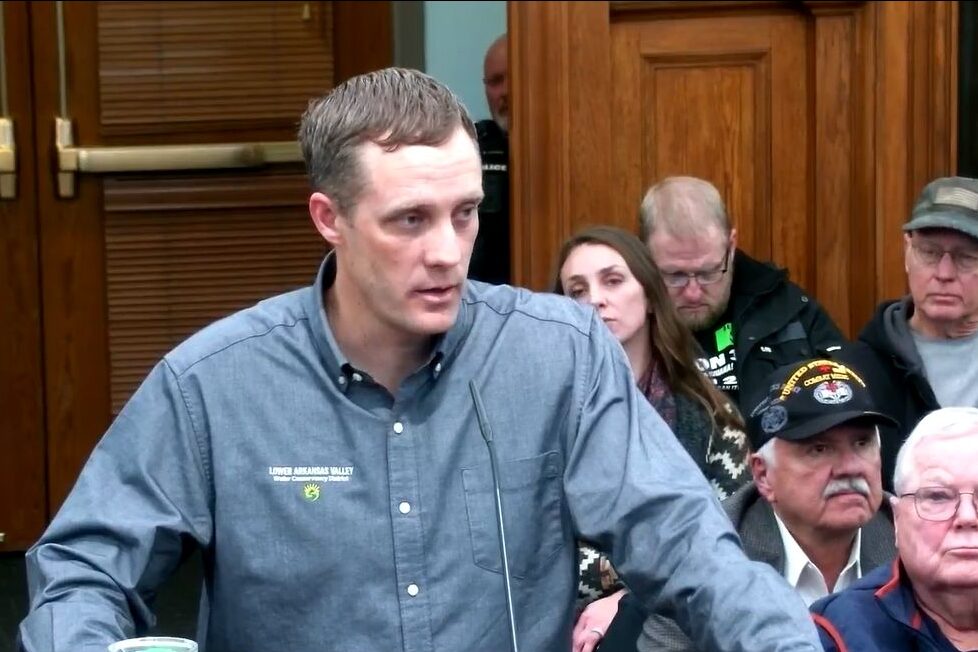Colorado Springs City Council District 3 comprises the Westside, Downtown, the Broadmoor, Cheyenne Canyon and the Nevada Ave/HWY 115 corridor spanning south to Fort Carson. Councilman Keith King has represented the district for the last four years, but decided not to run for reelection, leaving an open contest for his vacated seat.

Running to replace him are Richard Skorman—a longtime local businessman who served on city council for seven years from 1999-2006, including two years as the city's vice mayor—and Chuck Fowler, an entrepreneur and political newcomer with a background in oil and gas, real estate, and communications.
Both candidates say, if elected, they hope to address issues of storm water infrastructure, underfunded police and fire departments, homelessness, and economic growth in the city. Among the issues on which they disagree is the controversial "Broadmoor Land Exchange," which saw the city trade to the Broadmoor a 189-acre piece of parkland known as Strawberry Fields in exchange for more than 300 acres owned by the hotel. Strawberry Fields is located in District 3, and Skorman was an outspoken critic of the exchange, leading a non-profit group formed to stop the trade. For his part, Fowler spoke publicly in favor of the deal during the approval process, citing the benefits to city residents of allowing the Broadmoor to take over management of the property.
91.5 KRCC spoke to both candidates about why they're running and their visions for the city. Full audio and text excerpts from those conversations are below.
Richard Skorman

Richard Skorman is a familiar face in Colorado Springs politics. He was elected for two consecutive terms as a city council representative in 1999 and 2003, respectively. He left council in 2006, before the end of his second term, to run Ken Salazar's regional office. In 2011, he ran for mayor in a race which he lost in a runoff to Steve Bach.
Skorman has also been active in local environmental causes and has founded and served on the board of numerous local environmental groups, including the Fountain Creek Watershed, Flood Control, and Greenway District, the City Parks Board and others. He is also the owner of the Poor Richards complex of businesses in downtown Colorado Springs. Skorman says he will bring experience and institutional wisdom to a council in which six of nine seats are currently up for grabs.
On why he's running for City Council:
"I have lived in District 3 for most of the 46 years that I have been in Colorado Springs. I have a lot of passions about the district and thought this was a good opportunity to continue expressing them and to be able to improve the district."
"Also there are several issues that I was working on when I was on council before that are coming to fruition today. They're redoing the comprehensive plan, which I was involved with in 2000. They're talking about retiring the Drake Power Plant sooner rather than later, and I've been involved with that for many many years. Hiring a new Utilities director. There's talk about lots of greenways and bicycle infrastructure—things that I have cared about for quite a while. I'm also quite interested in storm water funding, police and fire, public safety, those kinds of things which I think I can weigh in on in an experienced way."
On some of the big issues facing Colorado Springs:
"Certainly coming up with dedicated storm water funding is an issue because we're being sued by the EPA, and we also have neglected that for many many decades. We built the city in a wrong way. You couldn't have scripted a worse city to put all these impervious surfaces and have such highly erodible soil, and then create a lot of population growth in the wildland-urban interface. So, we have a problem today that really is a result of not taking care of it in the past."
"There's also real serious issues with public safety. We now have lots of draws on the general fund, and we have police response times of 14 minutes for priority-one calls, and that's just not acceptable. We're training police and fire recruits and losing them to other departments because we're not able to pay them a median wage, and I'm concerned about that. I'm concerned that we don't have the infrastructure in place to really make us a safe community."
"I also think that we're really poised as a community in what I think are positive ways: growing small businesses, entrepreneurs, millennials from the north front range. So many of them have moved [to the north front range] and realized it's congested, expensive, it's not easy to get to the mountains, and I think we have a real opportunity to grow our community in positive ways that would create a much nicer place for younger people to live as well."
On his vision for the future of Colorado Springs and how he thinks the city could stand to mature as a community
"Certainly communities our size have a lot more cultural and art offerings, and I think we have a lot of good resources in that regard but we don't necessarily make those resources available to people. I would love to see an arts district created. I would love to see a greenprint put in place. Instead of always talking about what we want to grow in terms of subdivisions and new industries bringing in, let's figure out how to create that recreational amenity: the connections to trails, the ability to get to our waterways, to not have to be in a car all the time. That will bring people from other places to live here for our quality of life. Obviously, we're tax-phobic here, and we're known as a place for retirees, but we need to express our youth a little more, and make sure that this is a community of lots of different people, not just retired military."
"I would put money into attracting the kind of technology and the kind of industries that really are sustainable. Call centers and data centers are not. They don't provide a lot of revenue for people for jobs and they use a lot of energy. Why not invest in our fiber and create higher internet speeds? Why not make us the cybersecurity capital of the world, which we're starting to be? I'm not sure Fort Carson has a long future. I hate to say it, but infantry divisions and that kind of training isn't necessarily what the army's going to be looking in the future. It's a nice place to live, but it's not an easy place to move troops and those aren't the kinds of wars we're going to be fighting. Let's think outside the box a little bit, and figure out what we can do to make ourselves appear younger and more energetic."

Chuck Fowler
Chuck Fowler is a Colorado native who has lived in Colorado Springs since 1985. Fowler began his career in the oil and gas industry, but switched to real estate when he moved to Colorado Springs, and eventually struck out on his own as an entrepreneur. He says he hadn't been considering a city council bid, but was inspired to run when he heard that Keith King would be retiring.
Fowler previously made a foray into local political advocacy as the chairman of The City Committee, a non-profit group formed in 2010 to offer private sector expertise to help improve city government. Fowler says his background managing Colorado Springs homeowner's associations has prepared him to tackle some of the big infrastructure challenges facing the city, and that he hopes to bring a new perspective to city council.
On why he's running for city council:
"The opportunity presented itself with Keith King's, I guess you could call it retirement… so it was an open seat. To be honest with you I really wasn't thinking about doing this. A couple issues really got my attention that I thought I could maybe bring a positive difference to the discussion and the policy making. This community has historically had a very difficult time taking care of its infrastructure. I've been in the homeowner's association business for a long time, so I know the importance of taking care of your neighborhood, that's what homeowners associations do, so I'm intimately familiar with how you do that. HOAs do it a little differently than cities because we can't borrow money, we can't sell bonds, so we have to save money, we have to have reserves to be able to repair roofs and things like that. The city doesn't do that. Its budget is stretched every year because our tax base here is low…"
"In this town, the taxpayers, if they understand what the money's going for, if the see what it is, if those projects are identified and there's a cost associated with them, historically this town steps up and pays for those things. It's a matter of salesmanship, it's a matter of having a plan… it's hard, it's a hard sell. But being a business person, I'm a salesperson, because I have to sell what I do for a living, and that's what we need."
On some of the big challenges facing Colorado Springs:
"So, we have some significant issues, primarily with storm water. It's not an issue that touches people like potholes do. Almost everybody drives or rides in a car, so you get jolted when you hit a pothole and nobody likes that. That's an easier sell to fund. But storm water is critically important in how we manage that because of our responsibilities downstream to Pueblo and the Lower Arkansas Valley, and we have problems with that. So, being a business person and solving problems, especially in the business that I'm in, I thought I could bring a positive attitude to the conversation and help develop policy to address that problem as well as others. But that to me is probably the biggest issue facing the city right now."
"[In regards to the pressure on the city's general fund], Mayor Suthers had to get creative with funding and had to change things up with the police department, and that's not good. We need a fully funded police department; we need a fully funded fire department. So we have these pressures we have to deal with. We can't rely on TABOR overrides, because we don't know what the economy's going to do and if there's going to be excess sales tax collected every year…"
"Homelessness is essentially centered downtown, which is in [District 3], so that's something I'm learning a lot about. That's a big problem. Panhandling—which I separate from homelessness, panhandlers are not necessarily homeless, it's turned into a job for many—it's unsafe for those folks to be out on the road. We're trying to figure out, I think council has been trying to figure out how to regulate that in a way where all interests are served in a fair and equitable way. A lot of people don't want to go downtown because they're fearful, so that's an issue."
On his vision for the future of Colorado Springs:
"I've lived here for 32 years. Change comes here very slowly. Part of that is just because of how the culture of this community came together, with the component parts we have. In no small way it's shaped by the military, not only active military, but we have a significant retired military population that lives here. That colors the culture in a certain way, including government and the things that are supported and not supported."
"The biggest blessing of Colorado Springs is looking west at those mountains, and those don't really change, thankfully. I kind of draw my inspiration from that. Things don't happen quickly. I've never really understood why people are so unhappy with where Colorado Springs is. I'm not a part of that group. Do I think that our city government and our county government can improve? Absolutely. I think I can improve everyday in my business; I think I can improve everyday in my relationships. Absolutely, improvement is what we do here. But change is slow, and I'm fine with that."
"One thing that has changed the rate of change a little bit is the marijuana situation, and that has brought a certain amount of change dramatically, and I'm not sure the initial impacts of that are all positive… yeah, it's bringing some money into the treasury, but is it paying for the impacts that it's causing? I don't know, and I don't think we'll know that for a while… but that's one thing that has really changed the complexion of Colorado Springs in a dramatic way. Other than that, we're just slogging along. Our sales tax rate grows slowly so we just kind of do the things we do slowly, often times we wait until there's a crisis. I guess if I have a vision, I would like, from a government point of view for us not to take that approach… My vision is that we don't do that, that we plan for the future, we have a good plan, we make adjustments where we need to make adjustments because reality changes, and we march forward into the future. I think there's a certain amount of charm not knowing exactly what that is and what that means and waking up every day and seeing what's being presented to you and solving those problems.









